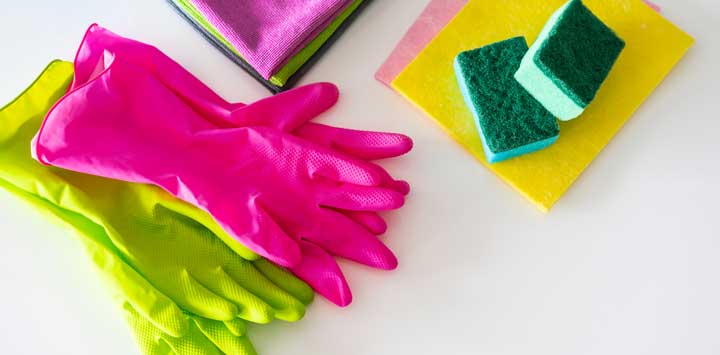Last Updated on January 31, 2025 by Cathy

Living with multiple sclerosis (MS) is not fun – I know. MS is not a death sentence and it’s not a guarantee that you’ll be in a wheelchair tomorrow but if you don’t take care of yourself your health will go down. You have the power to take charge of your health and your life. And having MS makes it more important to start today!
Unfortunately, more and more people are being diagnosed with MS every year. In 2017, almost one million adults were living with MS in the U.S. The previous estimate was 400,000 – that’s a huge difference!
Doctors want you to believe you need to take a pharmaceutical drug as soon as possible for the rest of your life. But these drugs only slow the disease down not stop it – if it works. Doctors don’t talk about using nutrients from food or lifestyle changes to manage your MS.
Researchers believe people are genetically predisposed. However, the biggest trigger to developing MS is lifestyle habits. Studies showed that if one identical twin has MS, the chance that the other twin has MS is only increased by 30%. I’m not saying that you caused your MS, it could have started when you were born. Was your mother stressed while pregnant with you? Were you born by cesarean? Were you given antibiotics as an infant?
Triggers to Multiple Sclerosis

Eating a poor diet, too much bad gut bacteria, and stress are just a few of the possible triggers that lead to MS. For some people changing their diet is enough to stop and reverse MS. But for others, like me, it’s many triggers. Looking at the list below, I fall into EVERY category. I added hormones to this list since it’s a known fact that people with vitamin D deficiency have a higher risk of MS.
Possible triggers to MS:
- Diet (processed foods, refined sugar, refined carbs, food allergies, etc.)
- Infections (bacterial overgrowth, parasites, viruses, and yeast overgrowth )
- Environmental Toxins (heavy metals, mold, pesticides, plastics, etc.)
- Chronic Stress (especially emotional stress)
- Hormones (vitamin D, cortisol, insulin)
- Genetics (you can’t change your genes but you can change your gene expression by living a healthy lifestyle)
It was over fifteen years ago when I first changed from eating processed foods to eating real food. My neurologist even had the nerve to tell me “Diet doesn’t work.” It’s a good thing I didn’t listen to him because that was the best decision I made for managing my MS.
Everyone is different so it will depend on how long you’ve had MS, the amount of damage, and the severity of your MS. But don’t get discouraged! I had MS for over 30 years when my symptoms began to reverse so I know it can happen.
Here are some steps you can take to stop and reverse your MS:
1 – Stop Eating Processed Foods
People don’t know how to cook using real food. They rely on prepackaged food and quick-boxed meals that are missing nutrients. Ingredient labels include ingredients that aren’t recognizable. Processed food includes hydrogenated fats and polyunsaturated oils like canola, corn, and sunflower.
Meats have antibiotics, sodium nitrates, and growth hormones. Including fake food like margarine, imitation flavorings, and colors. Non-organic produce includes pesticides, and GMOs, and is grown in synthetic fertilizers. Fast food restaurants are horrible when it comes to eating a nutrient-dense meal. But, according to the Centers for Disease Control 2013–2016, 36.6% of adults consumed fast food on a given day.
36.6% of adults consumed fast food on a given day.
– Centers for Disease Control and Prevention (CDC)
2 – Eat a Nutrient-Dense Diet
Eat mostly vegetables. Eat organic whenever possible to avoid pesticides. If that’s not possible, eat organic if it’s on EWG’s Dirty Dozen list. This is a list of produce that has the most pesticides on it.
I follow the Wahls Protocol of 9 cups of vegetables each day. It sounds hard at first but once you get used to it it becomes easy. Eating a large salad, vegetable soup, or drinking a green smoothie is an easy way to get your vegetables in.
Eat 3 cups of each:
- Dark leafy greens
- Colorful all the way through
- Sulfur (asparagus, broccoli, cabbage, onion, etc.)
Eat very little natural sugars like raw honey or maple syrup. It’s important to keep your blood sugar level. If your blood sugar is always high your body becomes insensitive to insulin. Also known as insulin resistance. Infections such as bacterial overgrowth, parasites, or yeast overgrowth feed on sugar. Your body can’t fully heal until you balance out your infections.

Don’t look at what you can’t eat, enjoy what you CAN eat. There are many foods that you can enjoy:
- Vegetables
- Fruit (avocados, berries, green apples, lemons, limes)
- Grass-fed and finished meats
- Pasture-raised poultry
- Wild-caught fish
- Healthy oils (avocado, coconut, nut, olive oil)
- Nut
- Seeds (chia, ground flaxseeds, sesame, sunflower)
3 – Drink More Water

I know this is tough for those with bladder issues. But, water is essential for your health. Our body loses fluids throughout the day, especially on hot days. Not drinking enough can cause dehydration and urinary tract infections (UTIs).
Drinking plenty of water also helps to lower your body temperature. This is important for those with heat intolerance. Staying hydrated also helps with fatigue, another symptom of MS.
Increase your water intake a little each day until you are drinking half of your body weight in ounces. For example, if you weigh 150 pounds you should aim for 75 ounces of water each day.
I like to fill a glass liter bottle with filtered water each morning and drink two of them each day. As you slowly increase your water intake your body will get used to the extra fluids. Eventually, you won’t have to go to the bathroom as often.
If you don’t like plain water add slices of lemon or lime. Berries, cucumbers, and mint leaves also add a nice flavor to your water.
4 – Heal Your Gut
Having MS means you probably have a leaky gut. A leaky gut happens when the gut lining begins to separate. It leaves gaps or “leaks” for food particles and toxins to pass through where they don’t belong.
Even if you don’t feel bloated or have heartburn there’s a pretty good chance you need to work on healing your gut. Studies show that the gut microbiome plays an important role in MS. Researchers discovered people with MS have more bad bacteria than healthy people.
If you have a leaky gut your body has a hard time absorbing nutrients. Probiotics and prebiotics can help with a leaky gut and add more good bacteria to the gut. Studies are looking into using probiotics as a possible treatment for MS. Eat a nutrient-dense diet that’s high in fiber including a wide range of healthy foods. Eat mostly vegetables that cover 3/4 of your plate. If needed work with a nutritional therapist to fix your leaky gut.
5 – Reduce Your Toxic Load

It’s impossible to remove all toxins, they are everywhere. But, the more you can remove the less your body has to deal with. It’s like a drop of water in a bucket, eventually, the bucket begins to overflow. Start by using natural care products that you put on your body. Hair products, soap, lotions, makeup, and toothpaste are just a few of the thousands of toxins we put on our skin. Check the EWG’s Skin Deep app to find natural products.
Avoid toxic household cleaners including heavily scented laundry detergents and fabric softeners. Use natural cleaning products that you probably already have in your pantry. Such as baking soda, vinegar, and hydrogen peroxide.
Other household toxins that escape into the air are from new furniture, carpets, and paint. Other common toxins are cigarette smoke, air fresheners, scented candles, and mold. Use essential oils as air fresheners, I like using Plant Therapy or Healing Solutions. Add houseplants like the easy-to-grow Golden Pothos plant to help remove toxins in the air.
Use an air purifier to clean your air and water filters to remove chemicals. Use a microfiber cloth to dust because it grabs the dust rather than throwing it back into the air.
Vacuum floors and carpets often. Vacuum your mattress every two weeks and use allergy-proof pillowcases and mattress covers. If dander from your pet is a problem keep them out of your bedroom.
6 – Keep Moving

It’s very important to keep moving. MS causes balance issues, foot drop, stiffness, spasticity, and weakness just to name a few. The more you sit the weaker you become and your muscles begin to atrophy.
Unfortunately, I know this all too well. When I was going through extreme stress from my job I was extremely depressed and wasn’t walking as often as I used to. I could feel the stiffness setting in making it harder for me to walk.
Fortunately, there are exercises you can do even if you’re in a wheelchair. If you’re mobile try walking, tai-chi, yoga, swimming, or a stationary bike. I highly recommend OptimalBody Personal Fitness, it’s an online gym you can do at home.
Like the name says it’s for people with MS. Whether you are mobile or in a wheelchair there is an exercise for you. You can find them on YouTube and Facebook. I recommend signing up for their monthly membership. It’s like going to physical therapy in your own home.
7 – Reduce Your Stress
This is a big one! I know how hard it can be to reduce your stress load but it is so important. As I mentioned earlier stress is what set me back and caused my walking to get worse. Stress is so detrimental to your health. Look for ways to help reduce your stress. Sometimes you may need to take drastic measures to get your stress under control. For me, it meant no more working in the newspaper business and getting my finances under control. And even though I hate to say it when our son moved out my stress also dropped.
People even loved ones can cause unnecessary stress. It might be tough but you may need to set up some boundaries. Let them know that it’s for your health. Hang around happy and supportive people.
Quick Links To Information In This Post:
10 Warning Signs You’re Dehydrated
What is the Wahls Protocol?
Tips to Heal Your Leaky Gut
Removing Environmental Toxins
8 – Get Enough Sleep
As we sleep our brain recharges itself and removes toxic waste byproducts. And our central nervous system reorganizes the connections between nerve cells. It fights infections and repairs damage. When you start eating healthy, exercise, and reduce your stress you may find it easier to fall asleep. If not, avoid caffeinated drinks in the afternoon. Limit your water intake so you don’t need to get up as often to use the bathroom.
Dim the lights in your home a couple of hours before bed. Avoid being on any electronic devices so your brain has a chance to unwind. Use aromatherapy to help you fall asleep. Such as Lavender or Good Sleep Blend and keep your bedroom cooler.
9 – Take Charge of Your Health
As you start the healing process you also need to look at your spiritual healing. Don’t hold onto bitterness, envy, or anger. Learn to forgive, not for the other person but for yourself. The more at ease you feel the more peaceful you will feel.
Meditation and deep breathing will help claim your body so you are not as stressed. Stop watching television and have a nice conversation with a family member or friend. Pets also help relieve stress and they are great listeners too. 😊

Free Wellness Library!
Subscribe for free and I’ll send you the password to my secret library filled with many printables for your wellness journey.
Want to remember this health tip? Pin it to your favorite Pinterest board!

Resources:
https://www.nationalmssociety.org/About-the-Society/News/Landmark-Study-Estimates-Nearly%C2%A01-Million-in-the-U
https://www.cdc.gov/nchs/products/databriefs/db322.htm
https://www.frontiersin.org/articles/10.3389/fimmu.2017.00598/full
https://www.ncbi.nlm.nih.gov/pmc/articles/PMC4651462/
https://www.sciencedaily.com/releases/2019/10/191021111835.htm
https://www.webmd.com/hypertension-high-blood-pressure/features/6-ways-pets-improve-your-health





